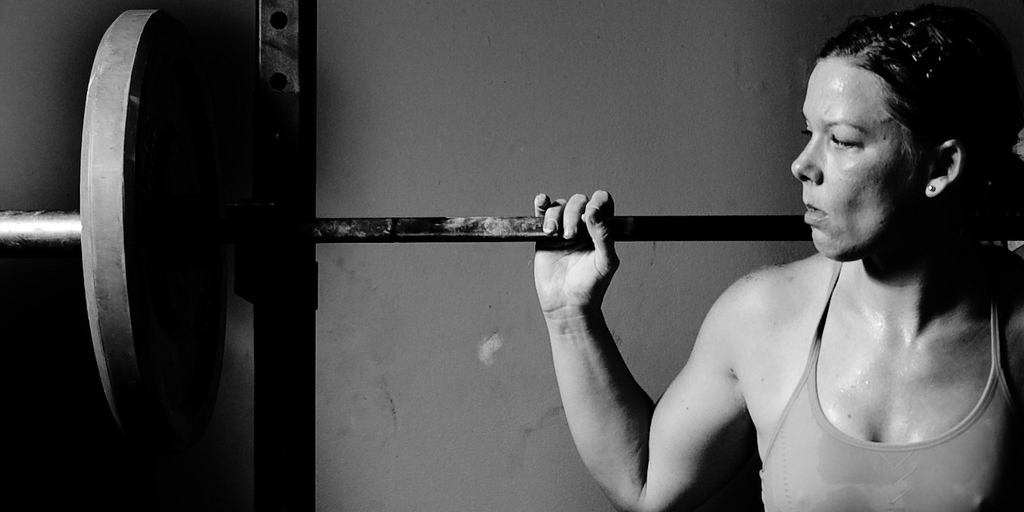You have no items in your cart. Want to get some nice things?
Go shoppingWhen Cilla Black died last year, I was devastated. Cilla had not only been a fellow Liverpudlian and television legend, but had also (it was later revealed) been plagued by the physical and emotional challenges of rheumatoid arthritis – an autoimmune disease with which I am painfully familiar.
While Cilla had been battling with the condition for years, my fight began relatively recently. For me, the first warning signs surfaced in late 2012. A few months before, I had begun dating a self-confessed gym rat. Being a little softer around the edges than him hadn’t bothered me at first. But I started to worry that he would one day stop seeing my curves as ‘cute’ and decided to join a gym.
Soon, I could be found lifting, running, boxing, climbing, swinging, cycling and swimming six days a week. I gave up beige food. I discovered protein shakes. I fell in love with power of my body, the post-workout endorphin high, the rush of being able to squat a kilo more than last week. I was a 5 foot 3 machine!
I’ll always wonder whether I was to blame for what happened next. Whether the extreme nature of my routine shocked my body to such an extent that I changed its very mechanics. Because only six months later, the first signs that something was amiss surfaced. My feet began to tingle on waking. Later, the tingling turned into discomfort. Then pain. By Christmas 2013, they were so swollen that I was only able to slide them into one particularly wide pair of boots (which oddly upset me more than anything had up until that point).
It was when the same symptoms spread to my hands the following March that I began to seriously worry. I knew that this wasn’t normal. This wasn’t overtraining or simple fatigue. I was sure that no one else at the gym had the same problems that I did pulling up their tights, using a computer mouse, fastening their bra, squeezing a shampoo bottle or holding their baby nephew just because they had spent 45 minutes on the cross trainer the day before. No. This was something else. Something more sinister. There was a fundamental flaw in the way that my body was working.
Those who know me well won’t be surprised to learn that I expected the worst. I have always carried with me a certain sense of doom, of foreboding. I am perpetually anxious. I have always assumed that something terrifying was around the corner, that my carefully constructed life was about to crumble around me. So on hearing the words ‘rheumatoid arthritis’, I smiled. I could finally relax. Here it was – the thing that I had been so afraid of all these years.
For the past decade, I’ve worked in some capacity as a healthcare writer. So I was well acquainted with the disease and the way in which my overactive immune system was currently attacking my joints due to a case of mistaken identity. I had also learned in that time that although it couldn’t be ‘cured’, the right cocktail of drugs could hold it at bay for many years.
Still, after my smile had faded and my next appointment scheduled, I headed straight for the nearest pub where my boyfriend found me three vodkas later. At that time, we didn’t live together. We had no kids. We had no real ties to each other. So it was only fair to give him an out. I promised him that I wouldn’t feel bitter or abandoned. I love him, after all, and didn’t know at that point what my future held. Would I ever be able to have children? Would he have to dress me someday? Wash me? Feed me? I couldn’t bear the thought of becoming such a burden to him and sobbed as I told him so. But he simply held me tight and told me not to be an idiot, vowing to love and support me through my darkest moments.
Early last year, that promise was tested. Despite everything I do and take, there will always be times when this disease crashes through the surface like a breaching whale. During last May, I suffered one such breach. It all happened terrifyingly quickly. Within a few weeks, I went from lifting and running most days to being almost bed-bound. Every day, I dragged myself to work and smiled, my world fogged by handfuls painkillers, steroids and anti-inflammatories. But at night, I would curl up on the couch and pass out from exhaustion and pain.
My lowest point came when the crutches were delivered. My boyfriend and I discussed the purchase and thought that they might take some of the pressure off of my screaming feet. We opened the box one night after another long, long day at work and I began to sob uncontrollably. For the first time in my life, I felt disabled. My mood plummeted. I could see no end. I began to wonder how anyone could live like this.
Eventually, I couldn’t hold myself together anymore. One morning, I reached the office after another slow and painful commute and a long-time colleague and friend asked if I was alright. I simply broke. I can’t describe it in any other way. The resolve and facade that I had held together for months shattered and everything within me spilled out. The few times in the past when I have cried in the office, I have done so in the privacy of the ladies’ toilets. But that week, I was quick to tear up. I cried when I confessed to my boss that I was in trouble. I cried when colleagues insisted all meetings be held at my desk so that I didn’t have to move. I cried when people brought me coffee. I cried when they shifted my working hours to ease my mornings. And I cried when they offered to put me in touch with the country’s leading specialists. I was embarrassed beyond belief, but relieved.
A few weeks later, I had my next consultation. Throughout this whole ordeal, I’ve been lucky enough to be under the care of a wonderful rheumatologist who treats me like a person rather than a statistic. He takes his time with me. He never rushes. He reassures me when I need it and lectures me when he can sense the denial creeping back in. The day of that appointment, I went to his office armed with pain diaries, photographs and a typed speech (I figured that I could just hand it to him if those pesky tears surfaced again). But I needn’t have bothered. He simply took one look at my face and knew that I was in trouble. An hour later, I left his office with a prescription in hand and a steroid injection in my hip. The prescription was for methotrexate – a drug that helps to suppress my overactive immune system. It leaves me a little nauseous and I’m not allowed to have children or drink alcohol while I’m taking it, but all that seems worthwhile for the relief it has given to me. I’m no longer in pain. My joints aren’t swollen. I’m not tired anymore. I feel normal.
Of course, this isn’t the end of the story for me. There’s a chance that in a few years’ time, the methotrexate may well stop working and I might need to switch again. But gone are the days when a rheumatoid arthritis diagnosis meant certain joint deformities and eventual immobility. Today, better diagnostic techniques and targeted therapies mean the future for people like me has never looked more hopeful. And who knows what’s around the corner? Every week I’m sent links to research about new targets and new therapies. Like Cilla said, life is full of surprises.

About Vickie McGee
Having found a passion for medicine early on, Vickie moved to the South East almost ten years ago to pursue a writing career in the healthcare sector. She likes coffee, Krav Maga, coffee, gardening and coffee. She also wants to read ALL the books.




